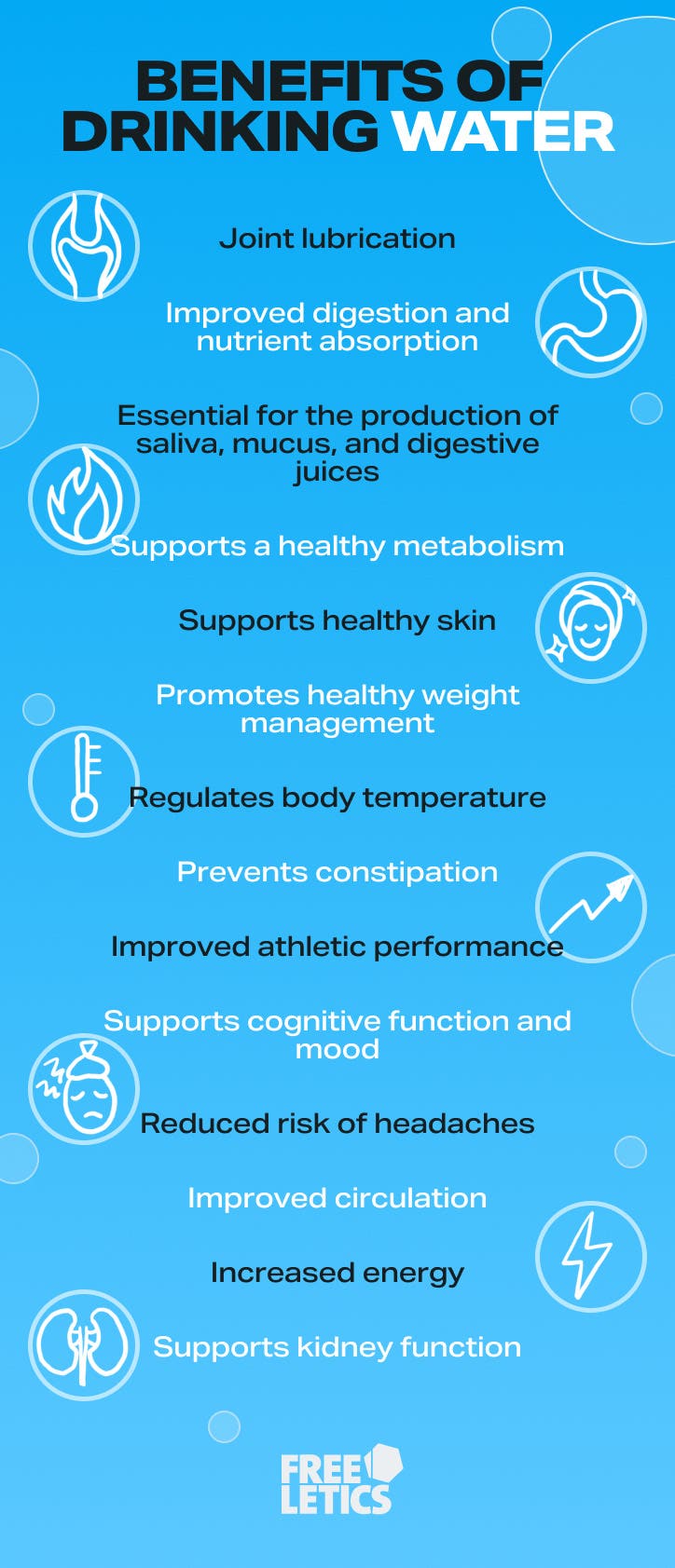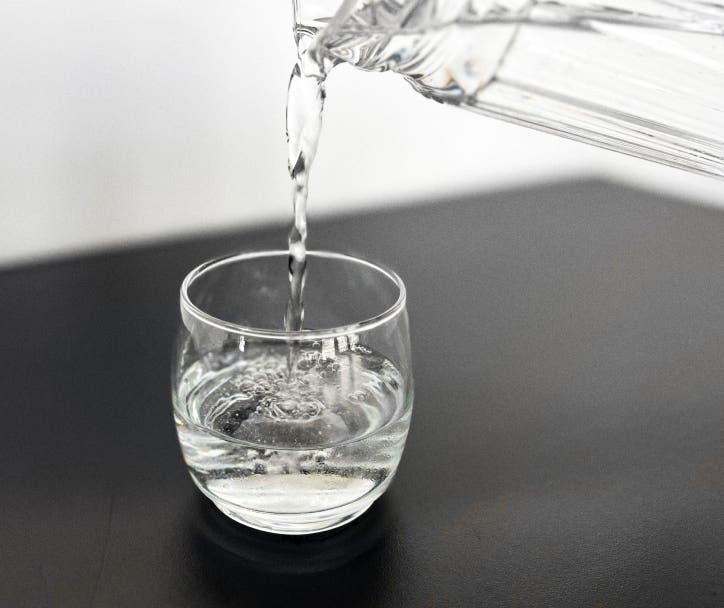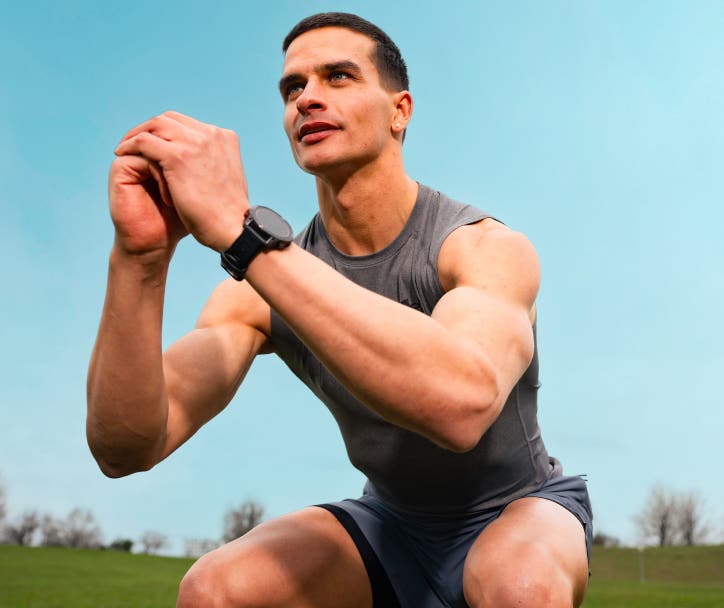Water is fundamental for all athletes, no matter your level. Despite its many benefits, staying hydrated is one area that’s often overlooked by athletes, including those at the top.
You might even be unknowingly guilty of it yourself. If you pay attention to your pre-and post-workout nutrition, but neglect your hydration, you could be limiting your potential or even worse – undoing all your hard work.
Why is water so important?
Water is a key component of blood, digestive juices, urine, and sweat, so it’s no wonder that water makes up the majority of our body weight. Even the human brain is approximately 80% water.1 So it’s easy to see why H2O is so important.
Whether you're a beginner or an elite athlete, without proper hydration, it’s impossible to perform at your best. Water not only keeps you hydrated, so you don't feel thirsty, but it also lubricates your joints, helping them function properly when you exercise.
Water also helps to regulate your body’s temperature. It distributes heat around the body and also cools your skin and body through sweating.2
And H2O’s superpowers don’t stop there – it also supports your circulatory system. As you become dehydrated, your blood volume decreases and thickens, which causes your heart to beat more rapidly and raises your blood pressure.
Proper hydration improves circulation, enabling your blood to deliver oxygen and nutrients to your working muscles, which will ultimately boost your performance and recovery.3
What are the benefits of drinking water?

How much should I drink per day?
According to the NHS, the standard rule of thumb is that most people should aim to drink 6 to 8 glasses of water per day.4 If you drink other fluids throughout the day like tea, coffee, or juice, you may need to tweak the amount to receive the full benefits of hydration.
Activity levels, temperature, and even your age can all have an impact on how much water you should drink. And some key factors may take your water needs up a notch:
- Exercise: Any exercise that makes you sweat means you need to drink water to replace the losses. The exact amount you need depends on several factors including the intensity of the activity. If you’re exercising for over an hour, you might need to consider electrolytes to help keep you hydrated. Not drinking enough water before, during, and after training can hinder your performance and increase the risk of injury.5
- Outside temperatures: When it’s hot outside, you’ll feel thirstier, so you’ll need to adjust your water intake to compensate.
- Age: Increasing age can dampen our sense of thirst which ups the risk of dehydration, and this can have a significant impact on health. Some research shows that poor hydration can speed up biological aging and increase the risk of developing chronic disease.6
What should I drink?
As a general rule, if you are training for less than an hour, good old-fashioned water is the best go-to drink during and after your workout.
If you’ve got a tough training or endurance workout (for more than one hour), you may need an extra boost, such as an electrolyte mix or sports drink, to replace the lost electrolytes.7 Just make sure to check the ingredients of sports drinks as many are unnecessarily high in sugar. If you’d rather steer clear of sports drinks, you can also try supplementing your water intake with snacks like pretzels and bananas.
And there are several other options beyond water and sports drinks you can consider when planning out your hydration strategy. Here are some other fluids that can count toward your hydration goals:
- flavored water
- unsweetened tea
- coffee
- soup
Ultimately, it all boils down to the type of exercise and the duration of your session when choosing which type of fluid is best for you.

Why should I drink if I’m not thirsty?
Even if you’re not thirsty, it’s still incredibly important for your health and athletic performance to stay hydrated. And you don’t need to be guzzling down a whole bottle at a time to ward off dehydration.
Drinking small sips consistently throughout the day or prioritizing a glass of water at meal times are great strategies to incorporate hydration in your day-to-day. You can even check how hydrated you are by assessing the color of your urine – if it’s a pale straw color, you’re probably well hydrated.
Remember, thirst is your brain letting you know that you’re not drinking enough fluids.8 So, prioritize your hydration before the negative effects of dehydration start to creep in.
Still not convinced? Hydration also supports your focus, improves your mood, and even helps control your appetite. Cheers to that!
Common hydration myths
While it’s no secret that water is good for you, there are still plenty of myths and misinformation surrounding proper hydration which can lead to poor practices and have negative health consequences. Let’s set the record straight and bust some of the common myths to help you boost your water intake.
Myth #1: Coffee is dehydrating
For a long time, coffee was thought to be dehydrating, but recent research suggests otherwise. It shows that caffeine is a mild diuretic, a substance that increases your urine output, but that there is no significant difference between the hydrating properties of water and coffee.9
Myth #2: Everyone needs 8 glasses of water per day
This has been the golden standard for a while, and while this recommendation is helpful, they’re just averages. Everyone’s hydration needs are different. Instead, it’s better to consider your physical activity, age, and external environment, and increase or decrease your intake accordingly.
Myth #3: Drinking liquids is the only way to stay hydrated
It’s a common misconception that you can only rehydrate by drinking fluids, but there are plenty of foods available that can top up your water intake. In fact, around 20% of your total water intake comes from the food you eat.10
Some ideas for hydrating foods include:
- soup
- fruit (strawberries, melon, oranges)
- vegetables (spinach, kale, cucumbers, celery)
Watch out for foods and snacks that can have the opposite effect. For example, salty snacks like chips and salted nuts can dehydrate you, especially if you’re not doing any activities that cause you to lose electrolytes.

Let’s recap:
Water is a key part of any training regime. And without it – you’re unlikely to perform at your best. Your joints won’t be well lubricated, your circulation will suffer, and you’ll miss out on all of the benefits that come along with a well-executed hydration plan. Start with the standard recommendation of drinking 6 to 8 glasses of water a day and customize it to you and your needs. Trust us, getting your hydration right could be the edge you need to start hitting those PBs.
Sources
[1] MacAulay N. (2021). Molecular mechanisms of brain water transport. Nature reviews. Neuroscience, 22(6), 326–344. https://doi.org/10.1038/s41583-021-00454-8
[2] Sawka, M. N., Montain, S. J., & Latzka, W. A. (2001). Hydration effects on thermoregulation and performance in the heat. Comparative biochemistry and physiology. Part A, Molecular & integrative physiology, 128(4), 679–690. https://doi.org/10.1016/s1095-6433(01)00274-4
[3] Watso, J. C., & Farquhar, W. B. (2019). Hydration Status and Cardiovascular Function. Nutrients, 11(8), 1866. https://doi.org/10.3390/nu11081866
[4] NHS. (2023). Water, drinks and hydration. Available at: Water, drinks and hydration - NHS
[5] Judge, L. W., Bellar, D. M., Popp, J. K., Craig, B. W., Schoeff, M. A., Hoover, D. L., Fox, B., Kistler, B. M., & Al-Nawaiseh, A. M. (2021). Hydration to Maximize Performance and Recovery: Knowledge, Attitudes, and Behaviors Among Collegiate Track and Field Throwers. Journal of human kinetics, 79, 111–122. https://doi.org/10.2478/hukin-2021-0065
[6] NIH. (2023). Link between hydration and aging. Available at: Link between hydration and aging | National Institutes of Health (NIH).
[7] Merryfield, C. (2023). What’s the best way to stay hydrated when exercising? Available at: What’s the best way to stay hydrated when exercising?
[8] NHS Inform. (2023). Thirst. Available at: Thirst - Illnesses & conditions | NHS inform.
[9] Killer, S. C., Blannin, A. K., & Jeukendrup, A. E. (2014). No evidence of dehydration with moderate daily coffee intake: a counterbalanced cross-over study in a free-living population. PloS one, 9(1), e84154. No Evidence of Dehydration with Moderate Daily Coffee Intake: A Counterbalanced Cross-Over Study in a Free-Living Population | PLOS ONE
[10] Gordon, B. (2022). How much water do you need? Available at: How Much Water Do You Need?